Welcome to a space which seeks to shed light on the lesser-discussed aspects of organic farming – the people who fuel it. When we think about organic agriculture, our focus often remains directly fixed on the products and the environmental benefits they provide. But how often do we pause to consider the farmworkers who bring these organic products to our table?
This conversation is about ethical employment in organic farming, a topic that encapsulates the importance of respecting and regulating the rights of the farmworkers. It’s about sustainable agriculture, that is about more than just food production and environmental stewardship. It’s about practices ensuring the wellbeing of all those involved in the organic farming cycle – from the earth to trade and from us, the consumers, back to the workers.
Through this exploration, we reflect on sustainable agricultural practices that do not only consider the impact on our environment but also weigh the socioeconomic consequences of the farming operations. The aim is to foster a food system that not only respects the planet but also upholds human dignity and assures economic viability for those working within it.
Key Takeaways
- Ethical employment in organic farming emphasizes both sustainable agriculture and farmworker rights.
- The goal of sustainable organic farming is a holistic food system benefiting the environment, society, and the economy.
- Fair wages, safe work conditions, and labor rights are fundamental aspects of ethical agricultural practices.
- Organic farming contributions aim to blend community wellbeing with environmental sustainability.
- Economic viability of small-scale farmers and equitable market access are crucial components of a sustainable food system.
The Core Principles of Ethical Employment in Organic Farming
There’s an undeniable interconnection between ethical principles and organic production. Acting as the backbone of the organic farming industry, these principles place emphasis on ensuring market access, protecting labor rights, creating safe working conditions, promoting resource efficiency and advocating for circularity in agriculture. In the spirit of fostering a comprehensive understanding, let’s explore these pillars of ethical employment in the realm of organic farming.
Ensuring Equitable Farm Profitability and Market Access
The principle of equitability underscores the importance of securing both profitability for farmers and market accessibility. Small-scale farming operations, representing the heart of organic agriculture, need to remain financially viable to sustain the trend towards ethical, organic products. This viability is safeguarded by the provision of fair and timely compensation to farmers, alongside the transparency and accessibility of organic markets.
Safeguarding Labor Rights and Creating Safe Working Conditions
Whether in standard agriculture or its organic counterpart, labor rights and safety of working conditions reign supreme. Ethical employment extends beyond the bare minimum labor standards requirements, encompassing proactive protections against health hazards like pesticide exposure and upholding worker dignity at every step. Creating a safe, respectful, inclusive and considerate work environment represents the cornerstone of the organic farming ethos.
Advocating for Circularity and Resource Efficiency in Agriculture
The industry’s trend towards organic standards is reinforced by the common initiatives promoting the principles of circularity and resource efficiency. In the agricultural context, the idea of circularity is synonymous with regenerative and sustainable practices that support the health of the ecosystem while minimizing waste. To strike a balance between humankind’s needs and environmental preservation, efficient resource management is the watchword. Embracing techniques like composting and crop rotation not only promotes biodiversity and maintains soil health but also paves the way for a sustainable agricultural future.
| Principle | Description | Sustainable Techniques |
|---|---|---|
| Equitable Profitability and Market Access | Ensuring fair compensation and transparent markets for farmers | Direct farmer-to-consumer sales, cooperative models |
| Labor Rights and Safe Working Conditions | Protection against health hazards and promotion of dignity at work | Regular safety training, caps on working hours |
| Circularity and Resource Efficiency | Minimizing waste and optimizing the use of natural resources | Composting, crop rotation, efficient water management |
Sustainability in Organic Agriculture: Beyond the Environmental Impact
When the term sustainability is coined with organic agriculture, it is common for our minds to gravitate towards its environmental impact. While that is an integral component, it is equally important to remember that sustainability in organic agriculture goes beyond the environment, serving as a robust platform that focuses on a holistic perspective.
Organic agriculture is a symphony that harmoniously blends environmental sustainability, economic stability, and social responsibility, creating a melody that echoes the importance of soil health, water management, and biodiversity conservation. Yet, it doesn’t cease there but reaches out further to ensure food security, risk management, community well-being, and farm profitability, juxtaposing the significance of our fields with the dinner tables.
For our world to be poised toward adaptive climate resilience, sustainable organic farming practices must ensure the availability of nutritious and safe food, recognizing food security as a paramount goal. Given the challenges posed by our ever-evolving climates and the strain on our resources, we need our farming to be resilient, grounding its roots deep into organic, sustainable practices.
With biodiversity conservation and efficient water management, organic farming practices promise a lasting positive impact on our environment. Beyond that, they resonate into the economy and the social fabric of rural areas, championing the cause of not merely organic produce but creating a harmonious give-and-take with nature.
The beauty of sustainable organic farming practices is the harmony amidst the chaos – a sustainable balance that ensures prosperity for all, extending from the farmer working the fields to the person enjoying the meal. And it is in this balance that true progress resides.
“Look deep into nature, and then you will understand everything better.” – Albert Einstein
The essence of organic agriculture is parallel to Einstein’s thoughts, that by looking deep into nature, you understand better – not just about plant growth or soil health, but about a deeper symbiosis that ensures sustainability, both for the land and the people upon it.
So, let us delve deeper, look more closely, understand it better, and work towards building a sustainable future with organic farming – for the planet, the people, and the generations to come.
Understanding and Mitigating Potential Health Risks for Organic Farmworkers
One common misconception about organic farming is that it’s entirely safe and free from the usual health risks associated with conventional agricultural practices. While it’s undeniable that organic farming brings tremendous ecological benefits and largely eliminates the use of harmful synthetic pesticides, it still presents certain distinctive challenges that can directly impact the health and well-being of farmworkers. These challenges are primarily associated with the exposure to organic pesticides and the labor intensity inherent in organic practices.
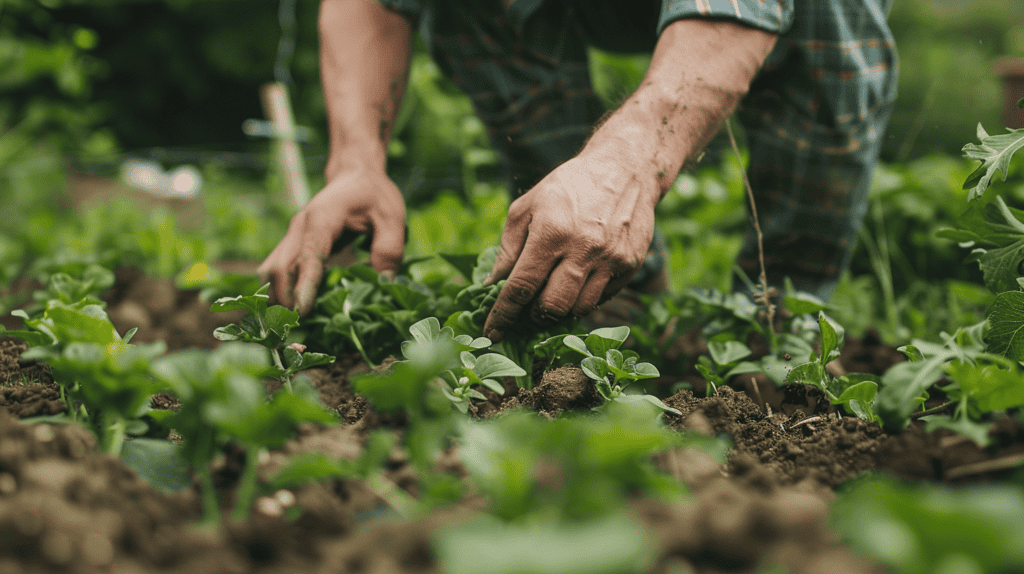
Organic Pesticide Exposure and Its Consequences
Organic farming avoids the use of synthetic pesticides, which are known for their harmful health effects. But that doesn’t mean they are entirely pesticide-free. Organic farming still employs organic pesticides derived from natural sources like plants or minerals. Though these are typically less harmful than their synthetic counterparts, some can pose potential health risks to organic farmworkers due to prolonged exposure.
Despite their organic nature, these pesticides can still lead to various workplace hazards, from mild skin irritations to more severe health conditions if misused or mishandled.
The Labor Intensity of Organic Practices and Worker Health
Organic farming is labor-intensive due to organic practices such as physical weeding and the use of cover crops to enhance soil health. While environmentally friendly, these practices require more manual labor and physical strength compared to conventional farming methods. As a result, organic farmworkers face an increased risk of physical strain and injuries.
Studies show that organic farming methods require up to 35% more manual labor than traditional methods. Hence, it’s crucial to raise awareness about the conditions organic farmworkers have to deal with every day and emphasize the need for promoting a healthy, comfortable, and safe work environment.
Understanding the potential health risks associated with organic farming and devising strategies to mitigate them is key to ensure the well-being of organic farmworkers. By doing so, we not only uphold the ethics of organic farming but also contribute to its long-term sustainability and success.
Fair Trade and Organic Certification: Integrating Social Justice with Environmental Care
If you care about ethical standards, consider this: Fair Trade and organic certifications integrate social justice with environmental care. These certifications embody the very ethical foundation of organic agriculture, creating a holistic approach that considers not just the ecological footprint of farming, but also the human element – the people behind the produce.
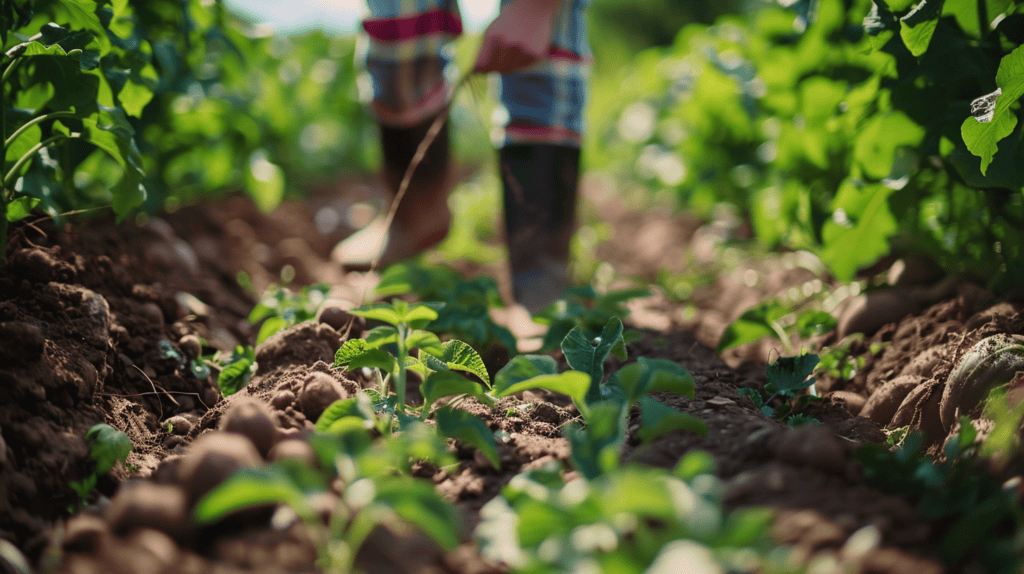
These certifications serve significant ethical reasons. In today’s world, the risk of farmworker exploitation is very real. Long hours, unsafe working conditions, and insufficient wages are just some of the issues they grapple with. But Fair Trade and organic certifications can help mitigate these risks. These certifications establish higher standards that demand not just better working conditions, but also fair wages and dignified treatment for farm laborers.
Of course, when we speak about organic certification, it’s impossible not to address its significant role in environmental care. With today’s growing concern for planetary health, organic certification’s primary focus on environmental aspects is praised by many. But it’s important to me to emphasize that the certification process should also accommodate the social criteria.
Indeed, even though the organic certification mainly focuses on environmental aspects including sustainability, minimizing the use of synthetic fertilizers, and promoting biodiversity, it’s time for social standards to be reflected in the process. Integrating these social criteria within the organic certifications can paint a clearer, more complete picture of true sustainability.
A sustainable world means not just caring for the environment, but also caring for the people living in it.
Understanding the standards and principles behind these certifications can be quite a task, so here’s a simple table to help encapsulate what they stand for:
| Certification | Criteria |
|---|---|
| Organic | Reduces negative environmental impacts through stringent standards on pesticide use, soil health, and biodiversity. |
| Fair Trade | Upholds social justice by ensuring fair payment, decent working conditions, and humane treatment of farmworkers. |
Overall, Fair Trade and organic certifications have the potential to positively impact not just our food system, but also the lives of those working tirelessly within it. When choosing products bearing these certifications, we contribute to a more sustainable and just world. And to me, that’s worth every penny.
Economic Viability: Balancing Efficiency, Community Well-being, and Food Security
The economic aspect of ethical organic farming involves maintaining a healthy balance. Efficiency, community well-being, and food security are tightly interwoven to form the sturdy fabric of this sustainable approach. The ever-increasing organic food sales highlight this successful balance, illustrating how the profitability of organic farming is linked to the welfare of communities and the security of our food systems.
Fostering Local Economies through Organic Farming
One of the many benefits of organic farming is its transformative impact on local economies. Community-centered and small-scale farmers benefit directly from this approach, fostering both their growth and the development of robust, local food systems. These local systems significantly contribute to community well-being and food security by providing accessible, nutritious, and sustainably produced food to the public.
Risk Management and Economic Resilience in Organic Production
Sustainable and ethical organic farming isn’t without its challenges. However, effective risk management practices positively contribute to overall economic resilience. A well-implemented organic farming system helps to adapt and endure uncertainties such as climate change and market volatility. This resilience is partly achieved through diversified crops, improved soil health, and a stronger community engagement which comes with the territory of organic farming. Thus, it is crucial this practice is both profitable for farmers and beneficial to the workers and the communities they serve.
Innovative Technologies and Education: Advancing Ethical Employment and Sustainable Farming
The introduction of innovative technologies paired with comprehensive agricultural education can substantially boost ethical employment and sustainable farming practices. By implementing advanced techniques such as precision agriculture and leveraging data-based approaches, we can optimize resource allocation and lessen environmental impact. At the same time, the burden on organic agriculture workers may be lightened.
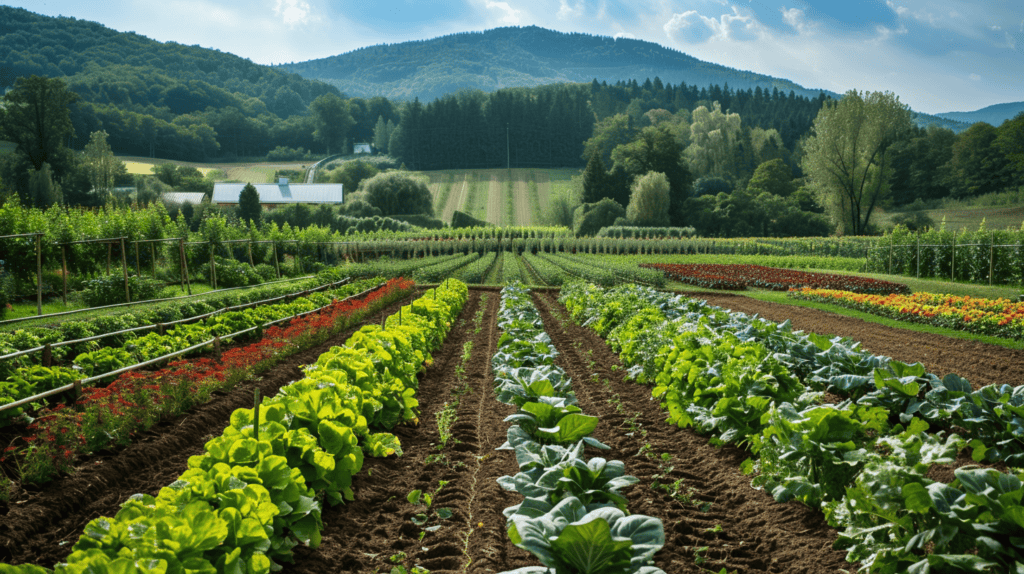
Precision Agriculture and Data-driven Decision Making in Organic Farming
With the rise of precision agriculture, farmers now have the tools to manage their farms with unprecedented detail. By harnessing the power of GPS and remote sensing, they have the ability to monitor their crops at a highly granular level. This goes beyond simply identifying patterns of growth and yield variations. Now, specific conditions can be adjusted in real-time – whether that be water usage, nutrient application or pest management – based on the detailed data gathered. The opportunities provided by data-driven decision-making are truly transformative in enhancing efficiency and sustainability.
Knowledge Sharing as a Tool for Empowering Organic Agriculture Workers
Communication and knowledge sharing are central to advancing ethical employment and sustainable practices. Disseminating and assimilating up-to-date knowledge on innovative technologies, best practices and personal experiences can equip those within the industry with the necessary tools for improved decision-making. Continuous learning and adaptation are vitally important in an constantly evolving industry.
| Technology | Usage | Impact |
|---|---|---|
| Precision Agriculture | Manage and monitor conditions in real-time with fine granularity, using data-driven decision making. | Increased efficiency, minimized waste, and optimized resource usage. |
| Knowledge Sharing | Exchange of crucial information, experiences, and best practices among the farming community. | Improved decision-making, innovation, and continuous adaptation to changes. |
By embracing innovative technologies and facilitating knowledge sharing, we can enhance the capacity for better practical decision-making within the industry, encouraging continuous improvement and adaptation in organic farming.
The Role of Government Policies and Organic Agricultural Practices Regulation
Government policies and regulations serve as strategic levers in the realm of organic agricultural practices, defining the broad context within which operations function. Responsible agriculture, the principal goal of organic farming, requires promoting environmental, economic, and social sustainability, which these policies can significantly influence.
We need a blend of supportive local, national, and international policies to drive the organic farming sector towards broader adherence to ethical and sustainable practices. By setting standards for organic certification, these policies illuminate the path to responsible agriculture. They regulate the use of farming inputs like pesticides and fertilizers and establish criteria that organic farmers must meet to achieve certification.
Government policies provide the guiding compass for responsible agriculture, leading farmers towards practices that benefit the environment and humanity. – Anonymous
Additionally, government policies provide incentives that align environmental and social sustainability with economic viability. From tax breaks for organic farmers to subsidies for businesses that commit to organic practices, these incentives drive the adoption of sustainable practices across the supply chain.
On a larger scale, regulatory frameworks encompassing environmental, economic, and social policies form integrated systems that encourage responsible agriculture and minimize the negative impacts of farming on the environment.
| Policies | Role in Organic Farming |
|---|---|
| Environmental Policies | Setting criteria and standards for organic certifications, supporting resource conservation, and regulating pollution |
| Economic Policies | Providing financial incentives like subsidies and tax breaks, promoting fair trade and market access |
| Social Policies | Protecting labor rights, ensuring health and safety standards, promoting equity and inclusivity |
| Regulatory Frameworks | Integrating environmental, economic, and social policies, driving broader adherence to sustainable practices and fulfilling the promise of responsible agriculture |
In conclusion, government policies and regulations play a pivotal role in shaping the future of organic farming. Through this conscious blending of policies and regulations, we equip the organic farming sector to meet the growing demand for healthy food, protecting our environment and ensuring social justice in the process.
Organic Farming at the Intersection of Family Farming and Industrial Agriculture
Working the soil and raising crops is a labor of love that has been passed down through generations of family farmers. The organic farming community cherishes the principles of family farming, emphasizing sustainability, protecting the environment, and supporting fair working conditions. Yet, the growth and scaling organically raises a host of ethical challenges.
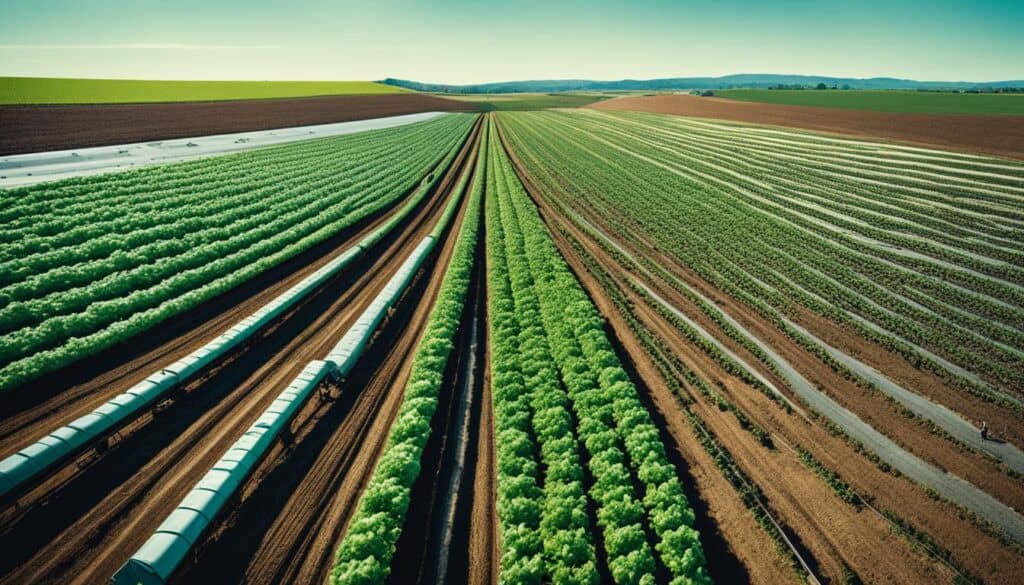
The Challenge of Scaling Organic Farming Ethically
Scaling up organic operations to meet increasing demand often requires a fine balance. Prospering economically while upholding the principles of organic farming like protecting soil quality, promoting biodiversity, and providing a just working environment is paramount. The industrialization of organic farming risks diluting these principles and replacing them with the sole focus on profitability.
Defending Small-scale Organic Operations from Industrial Homogenization
Small-scale organic farming operations form the backbone of the worldwide organic farming community. Industrial homogenization of organic farming threatens these operations, as they may be overshadowed or absorbed by larger industrial entities. To save family-run organic operations from displacement by industrial agriculture, there must be concerted efforts to protect and preserve the tenets specific to organic farming.
From the seed to the harvest and beyond, organic farming should not merely be seen as a source of food but a system that brings together environmental protection, social and economic welfare, and community building. The symbiosis between organic, family, and industrial farming needs to be carefully guided to ensure the future of not just agriculture, but also of our planet and its inhabitants.
Conclusion on Ethical Employment in Organic Farming
As we cast our gaze toward the future, we can envision a truly healthy and sustainable organic food system. This isn’t just about moving towards environmentally friendly practices but also ensuring ethical employment for all those agricultural laborers who contribute to the farming process. We are seeking a future where organic food systems are not just healthy for those consuming the produce, but equally beneficial for those growing it.
Envisioning a Future of Truly Healthy and Sustainable Organic Food Systems
So, when we talk about ‘sustainable organic farming’, we’re considering a larger, interconnected picture. It’s more than just wholesome produce on supermarket shelves, it’s about sustainable livelihoods for farmers, safe working conditions, fair wages, and above all, respect for the rights of all those involved in the food production journey. It’s about creating a symbiotic relationship with nature, where we replenish what we consume, advocating for practices that conserve soil, promote biodiversity, and ensure the earth’s well-being for generations to come.
The Power of Consumer Choice in Advocating for Ethical Employment
And just as each decision by a farmer impacts the health of our food systems, each choice we make as consumers has a ripple effect. Consumer demand for ethically sourced, organic products can be a powerful force for improving working conditions and promoting sustainability. Your choice to opt for organic may seem small, but when millions around the country make that same choice, we can collectively push for an industry where both the environment and those who rely on it for their livelihoods are treated with the dignity and respect they deserve. As the certified organic food sales continue to rise, it proves how powerful the consumer’s voice can become, and how crucial it is in setting better protection and standards for all players in the organic food production process.
FAQ on Fair Trade
Q: How does ethical employment play a role in sustainable organic farming?
A: Ethical employment is at the heart of organic farming. It involves ensuring fair treatment and appropriate remuneration for all farm workers who carry out the hard work. Giving priority to their rights promotes their social capital, drives international development and ultimately supports the sustainability in organic farming.
Q: What distinguishes organic farming from conventional agriculture?
A: Unlike conventional agriculture, organic farming avoids the use of synthetic pesticides and genetically modified organisms. Organic systems also prioritize animal welfare and conserving non-renewable resources, thus minimizing harm to the environment.
Q: How does organic farming impact the food supply particularly in developing countries?
A: Studies have found that organic farming can yield sufficient food supply even for developing countries. Organic crops are proven to resist extreme weather better and they nurture biodiversity, which plays a significant role in food security.
Q: What are some pesticides used in organic farming?
A: Organic farming uses natural pesticides derived from plants and bacteria rather than synthetic ones, minimizing harmful exposure to pesticides of farmers and farm workers. However, quantity and frequency of use are strictly controlled to ensure the safety of the environment and people who grow and consume the food.
Q: How does ordination of ethical employment in organic farms contribute to the larger organic movement?
A: Fair treatment and compensation of farmers and farm workers foster their well-being and job satisfaction, which can impel the interest in organic farming and indirectly promote the global organic movement.
Q: What principles of organic agriculture bring benefit to farm workers?
A: Principles of organic agriculture like biodiversity, sustainability, natural plant nutrition, natural pest management and integrity significantly reduce farm workers’ exposure to harmful chemicals, making the working environment safer.
Q: Does buying organic effectively support the rights of farm workers?
A: When people buy organic, they are supporting a system that emphasizes fair wages and working conditions for farmers and farm workers. It’s embedded in the ethical principles of the organic industry that insist on welfare both of the environment and of the people involved in the entire production.
Q: How is organic horticultural farming contributing to farmers’ social capital and better future?
A: Organic horticultural farming, being less dependent on non-renewable resources, offers farmers a more sustainable means to make a living. Its ethical employment practices also empower farmers with improved social status, thus developing their social capital for a better future.
Q: Why are people increasingly interested in organic versus conventional farming?
A: With growing awareness about the environmental impact and health risks associated with synthetic chemicals used in traditional farming, public interest in organic farming is likely to continue growing. Plus, organic label on food products gives consumers a sense of safety and quality assurance.
Q: Can organic farming mitigate the issue of food insecurity?
A: Indeed, sustainable farming practices used in organic farming focus on preserving long-term productivity of the land and avoiding unnecessary harm to the environment. These practices can contribute to long-term solution for food insecurity by ensuring continual and healthful food supply.

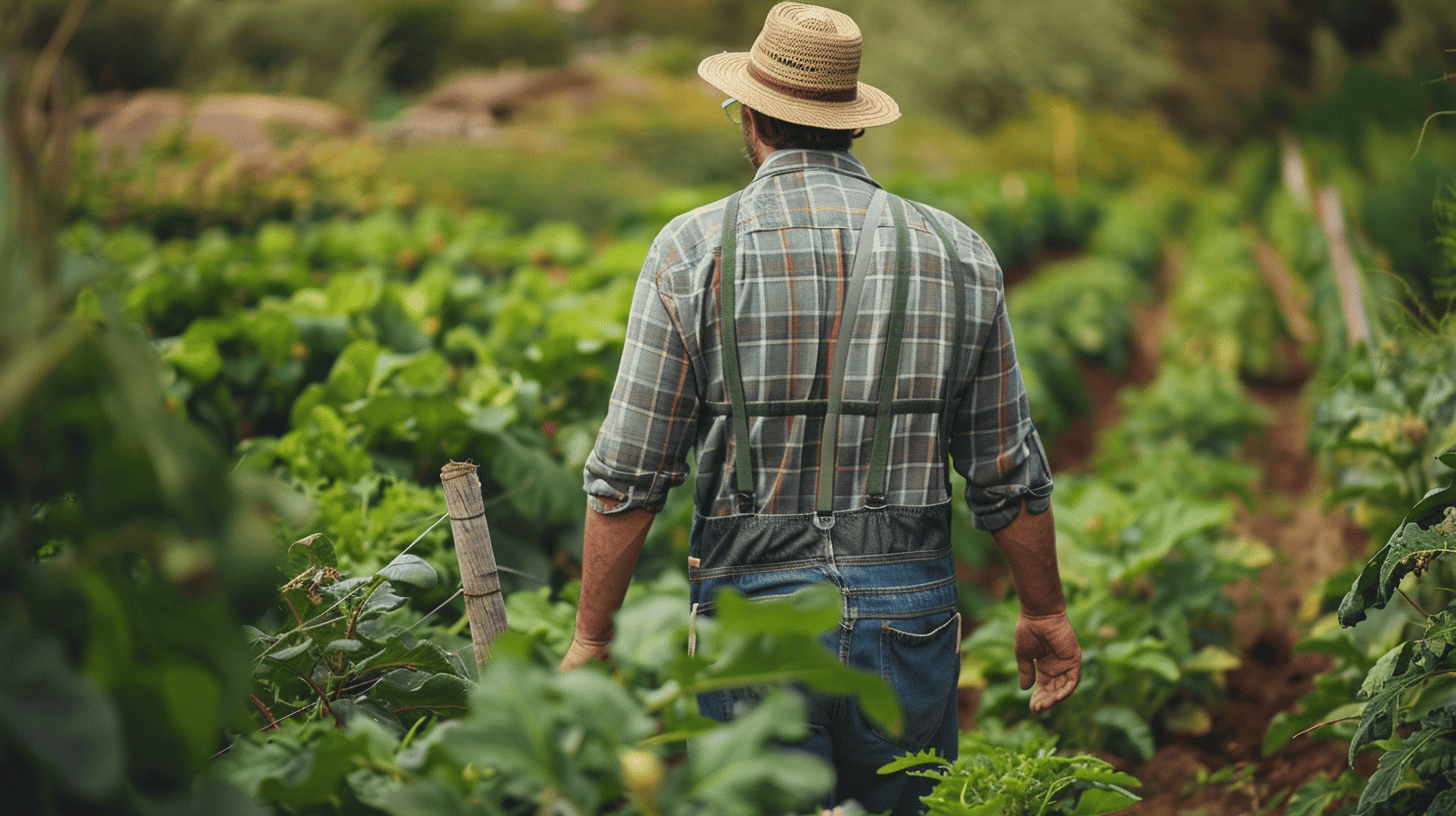


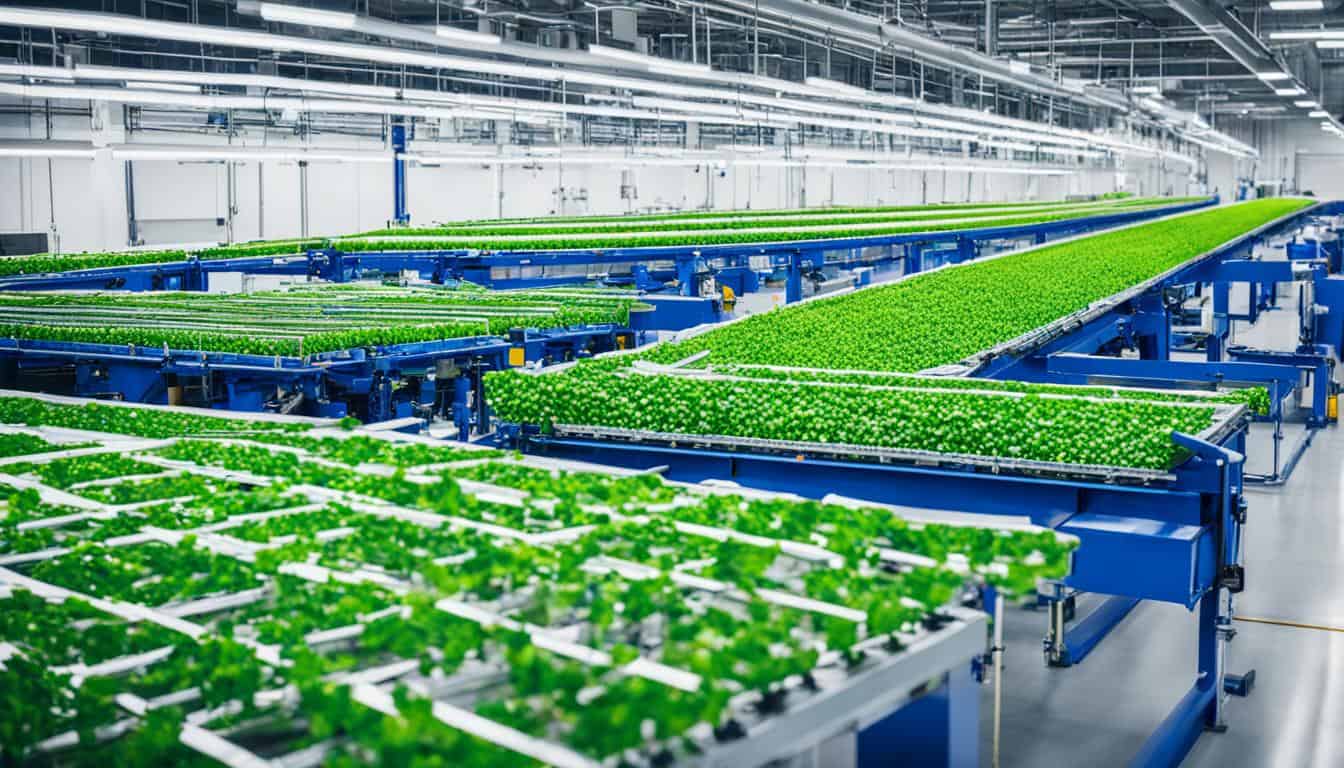
Leave a Reply